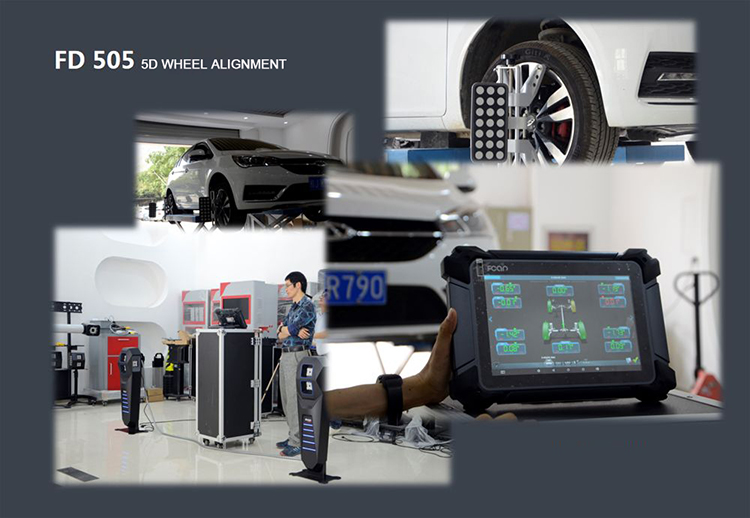Four wheel alignment meaning!
The Significance and Purpose of Four-Wheel Alignment
Four wheel alignment refers to the adjustment of a vehicle's suspension geometry parameters to restore wheel angles to manufacturer specifications. Its core significance lies in:
1. Ensuring Driving Safety
- Corrects uneven tire wear and pulling issues, preventing loss of steering control
- Maximizes tire contact area, improving traction on wet/slippery roads
2. Extending Tire Lifespan
- Eliminates abnormal tire wear (e.g., inner/outer edge wear) caused by misalignment
- Can extend tire service life by 20%-50%
3. Optimizing Handling Performance
- Restores precise steering response, reducing play in the steering wheel
- Improves straight-line stability and reduces high-speed vibrations
4. Reducing Fuel Consumption & Component Wear
- Decreases rolling resistance, lowering fuel consumption (~3%-10%)
- Prevents premature damage to steering/suspension components by reducing abnormal stress
5. Adapting to Post Modification/Repair Needs
- Essential after replacing suspension/steering parts or chassis impacts
- Required recalibration after modifications like lift/lowering kits
Key Parameters: Toe, Camber, Caster, Thrust Angle
When is Four Wheel Alignment Needed?
- Uneven tire wear patterns
- Vehicle pulling to one side or crooked steering wheel
- After suspension/steering component replacement
- Recommended check every 20,000 km or 1 year
Four wheel alignment is fundamental to chassis maintenance, directly impacting safety, fuel efficiency, and ownership costs. Requires professional 3D alignment equipment and technician expertise.
Prev:
How long does it take to change a tire
Next:
Next:


